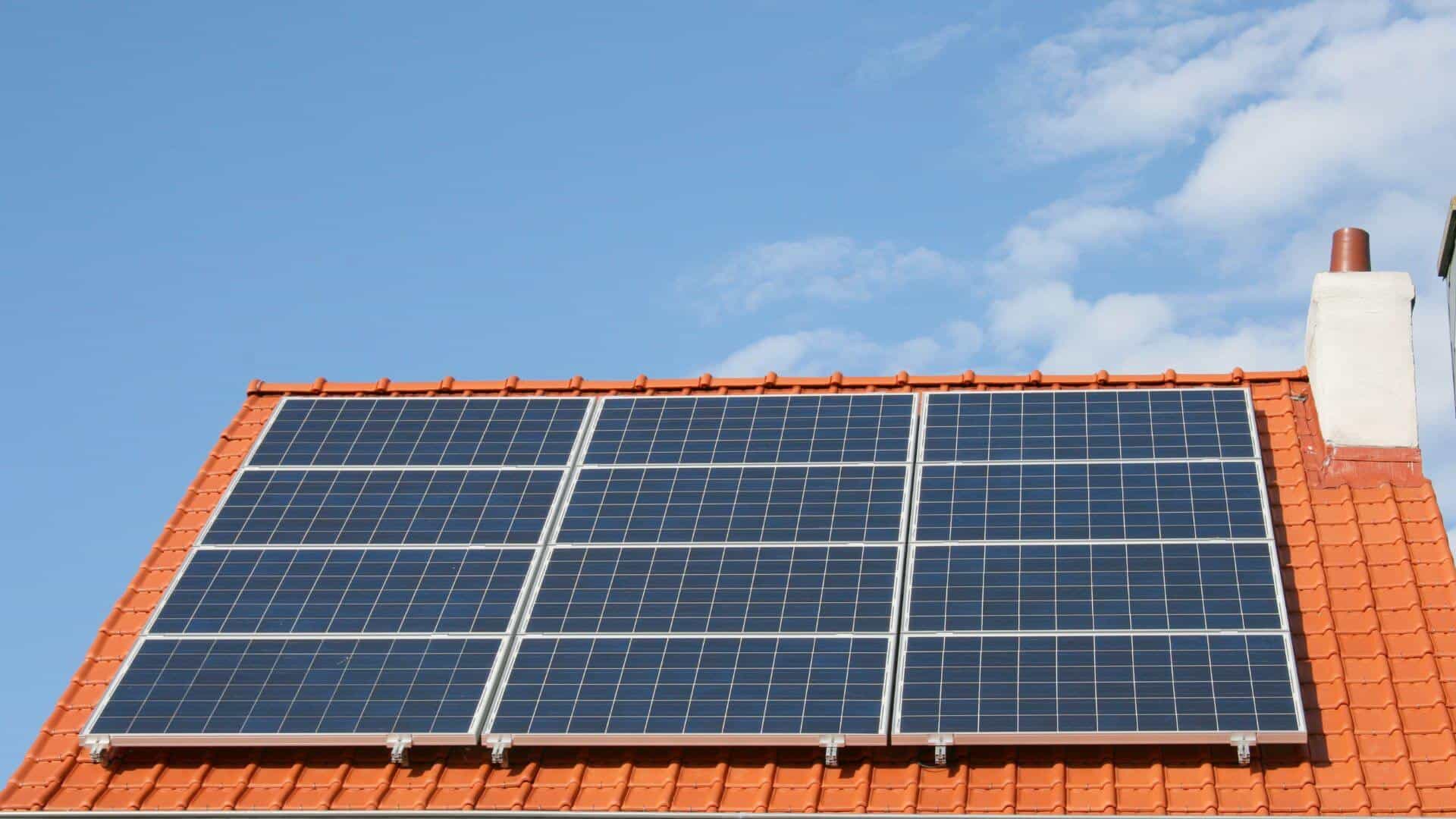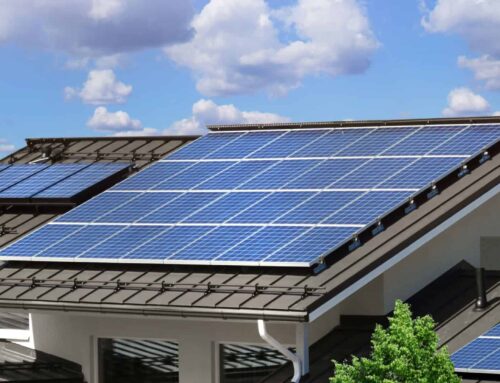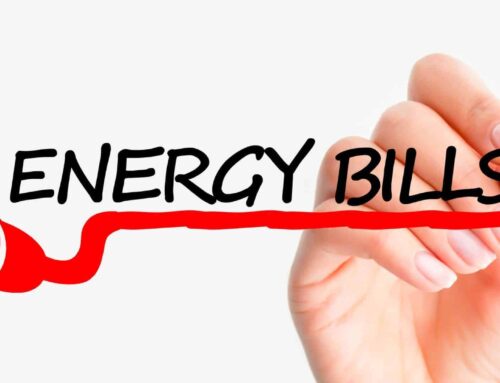Homeowners in Rhode Island are increasingly installing solar power panels to reap both economic and environmental benefits. Solar energy reduces monthly energy bills by allowing homeowners to generate their electricity and take advantage of state and federal incentives like tax credits and net metering programs.
It can also increase property value, as more buyers look for sustainable features, and helps reduce carbon footprints by providing clean, renewable energy. Solar panels offer energy independence, shielding homeowners from fluctuating energy prices while contributing to a greener, more sustainable future.
Exploring the Financial Savings Solar Power Panels Offer Rhode Island Homeowners
Solar Panels: A Sustainable Solution for Energy Generation
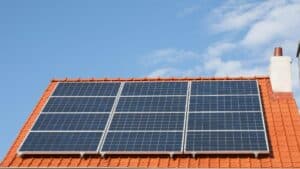
Solar panels, also known as photovoltaic (PV) panels, harness the power of the sun to generate clean, renewable energy. This sustainable technology utilizes solar radiation from the sun, converting it into usable electrical energy. With advancements in solar energy technologies, homeowners in Rhode Island are embracing solar panels as a cost-effective and environmentally friendly alternative to traditional energy sources.
Economic Benefits: Saving on Energy Bills and Increasing Property Value
By installing solar power panels, Rhode Island homeowners can significantly reduce their monthly energy bills. Solar energy systems enable homeowners to generate their electricity, decreasing reliance on the electrical grid. State and federal incentives, such as tax credits and net metering programs, provide financial benefits to homeowners who produce excess solar electricity that can be fed back into the grid. Moreover, solar panels can increase property value as more buyers recognize the value of sustainable features and seek homes powered by renewable energy.
Environmental Advantages: Reducing Carbon Footprints and Promoting Sustainability
Solar power panels contribute to a greener, more sustainable future by reducing greenhouse gas emissions. By utilizing clean, renewable energy from the sun, homeowners can significantly reduce their carbon footprints and environmental impact. Solar energy is a clean energy source that produces electricity without the emissions associated with fossil fuel-based power generation. By producing electricity from solar power panels, homeowners actively participate in reducing reliance on non-renewable energy sources and combating climate change.
The Path to Energy Independence: Generating and Storing Solar Energy
Solar power systems provide homeowners in Rhode Island with energy independence, shielding them from fluctuating energy prices. Solar panels not only generate electricity during the day but can also store excess energy for use during times of low solar generation, such as cloudy days or at night. Energy storage technologies, such as battery systems, allow homeowners to store solar energy and utilize it when needed, ensuring a continuous and reliable power supply.
Contributing to a Growing Solar Industry and a Sustainable Future
By embracing solar power panels, homeowners in Rhode Island actively contribute to the growth of the solar industry and the development of renewable energy sources. Solar farms, power plants, and solar parks are expanding across the state, increasing the capacity for solar electricity generation. This growth in solar energy not only supports the transition to clean energy but also creates job opportunities and stimulates the local economy.
As Rhode Island homeowners harness the power of solar energy, they not only enjoy financial savings on their energy bills but also contribute to a more sustainable and environmentally conscious future. Solar power panels offer a reliable and renewable solution to meet energy needs while reducing carbon emissions and promoting energy independence. By embracing solar technologies, Rhode Island homeowners can play a vital role in the transition to clean energy and contribute to a greener tomorrow.
Embracing Energy Security Through Home Solar Power Systems
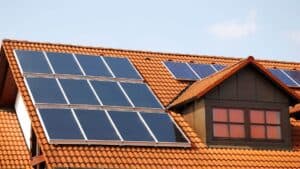
The Power of Solar Panels
Solar panels, also known as photovoltaic (PV) panels, play a pivotal role in harnessing solar energy and converting it into usable electricity. These panels consist of interconnected solar cells that collect sunlight and convert it into direct current (DC) electricity. With advancements in solar technologies, homeowners can now install solar panels on their rooftops or in their yards to generate electricity for their consumption.
Benefits of Solar Power
- Renewable and Sustainable: Solar power is a clean and renewable energy source, utilizing the abundant solar radiation that reaches the Earth’s surface every day. By harnessing solar energy, homeowners reduce their reliance on fossil fuels and contribute to a greener and more sustainable future.
- Energy Independence: Generating electricity from solar panels provides homeowners with greater energy independence. By producing their power, homeowners are less reliant on the traditional power grid, reducing the risk of power outages and increasing energy security.
- Financial Savings: Adopting solar power allows homeowners to save on their energy bills. With a solar system in place, homeowners can generate electricity from the sun and offset their energy consumption from the power grid, resulting in lower monthly utility costs.
- Reduced Carbon Footprint: Solar power is a clean energy source that produces zero greenhouse gas emissions during operation. By utilizing solar energy technologies, homeowners can significantly reduce their carbon footprint and play a part in mitigating climate change.
Exploring Solar Technologies
- Photovoltaic (PV) Systems: PV systems, comprising solar panels, are the most commonly used solar energy technology. These systems convert sunlight into electricity through the photovoltaic effect, making them a reliable and widely adopted solution for residential solar power generation.
- Concentrating Solar Power (CSP): CSP systems use mirrors or lenses to concentrate sunlight onto a receiver, which collects the solar energy and converts it into thermal energy. This thermal energy is then used to generate electricity through traditional power-generating methods.
- Solar Water Heaters: Solar water heaters utilize thermal energy from the sun to heat water for domestic use. These systems can help homeowners reduce their reliance on fossil fuel-powered water heaters and save on energy costs.
The Future of Solar Power
The growth of solar power continues to accelerate, driven by technological advancements, decreasing costs, and increasing awareness of the benefits of renewable energy. As more homeowners embrace solar technologies, the demand for solar panels and other solar energy systems continues to rise. With innovative financing options like power purchase agreements (PPAs), homeowners can easily access and benefit from solar power, further fueling the growth of the solar industry.
By harnessing the power of solar energy through home solar power systems, homeowners contribute to their energy security, reduce their carbon footprint, and pave the way for a sustainable and environmentally conscious future.
Steps to Select the Best Solar Power Panels for Rhode Island Homes
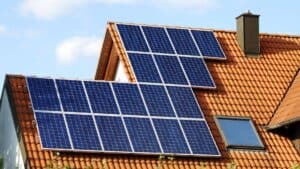
When considering solar energy technologies for your Rhode Island home, it’s essential to make informed decisions to maximize the benefits of your solar system. Here are the key steps to guide you in selecting the best solar power panels:
1. Understand Your Energy Needs
Assess your household’s energy consumption to determine the required capacity of your solar system. Consider factors such as your electricity usage, available roof space, and the amount of direct sunlight your property receives.
2. Research Different Solar Panel Technologies
Explore the various types of solar panels available, including crystalline silicon, thin-film, and concentrating solar power. Each technology has its strengths and considerations, such as efficiency, durability, and cost-effectiveness.
3. Evaluate Panel Efficiency and Performance
Efficiency measures how well solar panels can collect solar energy and convert it into electricity. Look for panels with higher efficiency ratings, as they can generate more electricity with limited space.
4. Consider Installation and Maintenance
Choose solar panels that are compatible with your roof structure and suitable for the weather conditions in Rhode Island. Additionally, consider the warranties offered by manufacturers and the availability of local solar installers for seamless installation and reliable maintenance.
5. Review Financial Options and Incentives
Explore available financial options, such as solar loans and leasing programs, to make your solar investment more affordable. Additionally, research state and federal incentives, such as tax credits and rebates, which can significantly reduce the upfront costs of your solar system.
6. Seek Multiple Quotes and Compare
Obtain quotes from multiple reputable solar companies to compare pricing, warranties, and system components. This step ensures that you make an informed decision and choose the best solar system that meets your needs and budget.
By following these steps and considering key factors such as solar panel efficiency, installation suitability, and financial options, Rhode Island homeowners can confidently select the best solar power panels for their homes. Embrace solar growth and harness the sun’s energy for sustainable electricity generation, reduced carbon footprint, and potential savings on energy costs.
Understanding the Maintenance Needs of Solar Panels for Long-Term Use

Solar panels, with their ability to harness the sun’s energy and convert it into clean electricity, are a reliable and sustainable choice for homeowners. However, to ensure their optimal performance and longevity, it is essential to understand and address the maintenance needs of solar panels. By following a few key practices, homeowners can maximize the efficiency and lifespan of their solar system. Here are some important considerations:
Regular Cleaning and Inspection
Regularly clean the surface of solar panels to remove dirt, dust, and debris that can hinder sunlight absorption. Use a soft cloth or a gentle brush and mild detergent to avoid damaging the panels. Additionally, perform routine inspections to identify any signs of damage, such as cracks or loose connections, that may affect the system’s efficiency.
Monitoring Energy Production
Monitor the energy generated by your solar panels regularly to ensure they are operating at their optimal capacity. By tracking energy production and comparing it against expected levels, you can identify any potential issues or inefficiencies promptly.
Maintenance of Battery Systems (if applicable)
If your solar system includes battery storage, it is important to regularly inspect and maintain the batteries. Follow the manufacturer’s guidelines for battery maintenance, including checking the charge levels, monitoring battery health, and ensuring proper ventilation.
Professional Servicing and Maintenance
Engage a professional solar panel servicing company for periodic maintenance and inspections. These experts have the knowledge and expertise to identify and address any technical issues that may arise. Additionally, they can perform more specialized tasks like checking electrical connections, testing system performance, and conducting preventive maintenance.
By understanding and addressing the maintenance needs of solar panels, homeowners can ensure the long-term reliability and performance of their solar system, reducing the need for costly repairs and maximizing the benefits of clean and sustainable energy technologies. Embrace solar power and contribute to a greener and more sustainable future for all.
Integrating Solar Power Panels with Smart Home Energy Systems
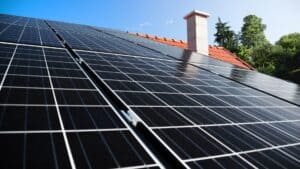
As technology advances, integrating solar power panels with smart home energy systems has become an innovative and efficient way to harness solar energy for various household needs. This integration allows homeowners to optimize their energy usage, reduce their carbon footprint, and maximize the benefits of renewable energy. Here are a few key components and benefits of integrating solar power panels with smart home energy systems:
1. Solar Panels:
Solar panels, also known as photovoltaic (PV) panels, are the primary component of a solar energy system. These panels consist of multiple solar cells that convert sunlight into electric current. The first solar cell was developed in 1954 and has since paved the way for the widespread use of solar energy.
2. Space Heating:
Solar energy can be utilized for space heating through various methods. One common approach is using solar panels to generate electricity that powers heat pumps or electric heaters. These systems efficiently convert solar energy into thermal energy to heat indoor spaces.
3. Thermal Storage:
To ensure consistent energy availability, smart home energy systems often incorporate thermal storage solutions. One popular option is a storage tank, which stores excess thermal energy generated by the solar panels. This stored energy can be used later for space heating or other heating needs.
4. Flat Plate Collectors:
Flat plate collectors are another component used in solar energy systems. These collectors consist of flat, dark-colored panels with tubes or pipes running through them. They absorb solar radiation and transfer the heat to a fluid, which can then be used for various purposes, such as heating water or air.
5. Solar Work:
Solar energy systems can also be designed to perform specific tasks, such as heating water. This is commonly achieved through solar water heaters, which use the heat from the sun to warm water for domestic use. Solar ponds, which are large bodies of saltwater or freshwater with high temperatures, can also be utilized for heating purposes.
6. Small Scale and Surface Area:
Integrating solar power panels with smart home energy systems is often done on a small scale, suitable for residential buildings. The surface area available for solar panel installation may vary depending on the size of the roof or available outdoor space.
By integrating solar power panels with smart home energy systems, homeowners can take advantage of solar energy for space heating, electricity generation, and thermal storage. This integration allows for greater energy efficiency, reduced reliance on non-renewable resources, and lower energy costs. Embracing this sustainable approach not only benefits the environment but also provides long-term financial savings and contributes to a greener future.
Addressing Common Myths About Solar Energy in Rhode Island
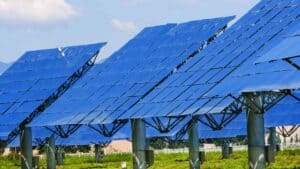
Myth 1: Solar Energy Doesn’t Work in Rhode Island’s Climate
Rhode Island’s climate may not be as sunny as some other regions, but solar energy can still be harnessed effectively. Solar panels work by capturing the sunlight’s energy, not the heat, making them functional even in cooler temperatures. Solar panels can still generate electricity from sunlight, even on cloudy days. Moreover, Rhode Island receives enough sunlight throughout the year to make solar energy a viable and efficient renewable energy option.
Myth 2: Solar Energy Can Deplete the Earth’s Atmosphere
Solar energy systems do not contribute to the depletion of the Earth’s atmosphere. Unlike fossil fuels, which release harmful greenhouse gases when burned, solar energy systems produce electricity through chemical reactions within the solar panels. These chemical reactions do not emit any substances that harm the environment or deplete the ozone layer. Utilizing solar energy helps reduce greenhouse gas emissions, mitigating the impact of climate change.
Myth 3: Solar Energy Can Only Be Generated from Solar Panels
Solar panels are the most common and visible means of generating solar energy, but they are not the only method available. Solar ponds, which are large bodies of water with high salt concentrations or additives, can also harness solar energy to generate heat. These ponds can be used for various purposes, such as heating water for domestic use. However, it’s important to note that the use of solar ponds in Rhode Island is generally limited due to the state’s climate and the need for specific water temperatures to optimize energy generation.
By addressing these common myths, we can dispel misconceptions surrounding solar energy in Rhode Island and promote its importance as a sustainable and viable energy source. Embracing solar energy not only reduces reliance on non-renewable resources but also helps homeowners save on energy costs while contributing to a greener future.
Take the Next Step Towards Solar Energy with KnowSolar.com
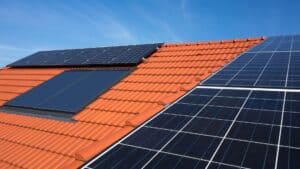
Ready to harness the power of solar energy for your home or business in Rhode Island? Contact KnowSolar.com today to explore the possibilities and benefits of solar panel installation. Our team of experts will guide you through the process, from evaluating your energy needs to designing a customized solar solution that maximizes your savings and contributes to a sustainable future.
Why Choose KnowSolar.com?
- Extensive Experience: With years of industry experience, we have the knowledge and expertise to deliver top-notch solar solutions tailored to your specific requirements.
- Quality and Reliability: We partner with trusted brands to provide high-quality solar panels and equipment, ensuring long-lasting performance and maximum energy efficiency.
- Professional Installation: Our team of certified installers will handle every aspect of the installation process, ensuring a seamless and hassle-free experience.
- Excellent Customer Service: We are committed to providing exceptional customer service and ongoing support, answering any questions you may have, and addressing any concerns.
Don’t miss out on the opportunity to save on energy costs, reduce your carbon footprint, and make a positive impact on the environment. Contact KnowSolar.com today for a free consultation and take the first step towards a sustainable future powered by solar energy.

